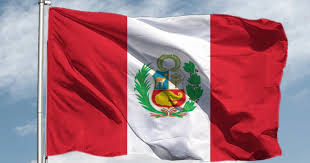JERUSALEM, Feb 24 (NNN-XINHUA) – Israel’s longest-serving Prime Minister, Benjamin Netanyahu, is facing the battle of his life, with crucial national elections to take place on Mar 2, and a corruption trial to be opened only two weeks later.
Last July, Netanyahu became the longest-serving prime minister in Israel’s history, surpassing David Ben-Gurion.
His election campaign focuses on how his legacy will be remembered: as a great statesman and popular leader, known by his supporters as “King Bibi,” as Bibi is Netanyahu’s often-used nickname, or as a hedonistic leader, involved in corruption.
On Mar 17, his trial is scheduled to be opened at the Jerusalem District Court, marking the first time that an incumbent prime minister in Israel stands trial. General-Attorney, Avichai Mandelblit, indicted him with bribery, fraud, and breach of trust in three separate corruption cases.
In two cases, Netanyahu is suspected of providing regulatory and financial benefits to business owners of large media and telecom corporations, in return for favourable media coverage.
In the other case, he allegedly received expensive cigars, champagne, and jewellery, worth about one million new shekels (293,000 U.S. dollars) from Israeli tycoon and Hollywood producer, Arnon Milchan.
Netanyahu’s father, Benzion, was Polish-born and member of the nationalistic Revisionist Zionism faction.
In 1956, the Netanyahu family moved to the U.S., where he spent his teenage years and attended high school.
Netanyahu returned to Israel to serve as a soldier and commander in a commando unit called Sayeret Matkal, before returning to the U.S. and obtaining academic degrees in architecture and business administration.
In 1993, he won the Likud chairmanship, becoming the official leader of the party. He expressed strong opposition to the 1993 Oslo Accords, an interim framework agreement, providing the Palestinians with self-government.
In 1996, amid a wave of attacks by Palestinians, Netanyahu was elected as prime minister for the first time, beating Shimon Peres, Israel’s former president.
It was a razor-thin margin victory. Netanyahu became Israel’s youngest prime minister, but was criticised for his lack of experience.
Despite Netanyahu’s hawkish views against the Israeli-Palestinian diplomatic contacts, he negotiated with the Palestinian Authority (PA) in 1997, and signed a deal, handing the control over some 80 percent of the West Bank city of Hebron to the PA.
Netanyahu was defeated in 1999 by Ehud Barak, a left-wing politician and former army chief.
His recent years have focused on Iran, highlighting the risk a nuclear Iran poses to Israel.
The Iranian issue also shadowed his relations with former U.S. President, Barack Obama, with a head-on collision between the two, amid Netanyahu’s hawkish view on the Iranian nuclear programme negotiations and the conflict with the Palestinians.
Relations with the United States saw a revival, after Donald Trump was elected. In May, 2018, Trump moved the U.S. embassy from Tel Aviv to Jerusalem.
The two leaders have close ties. Netanyahu fully endorses Trump’s Mideast plan.– NNN-XINHUA





